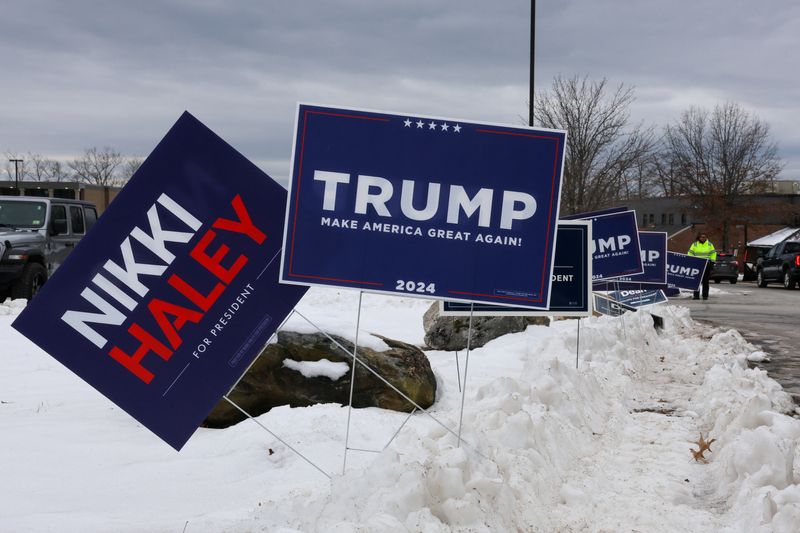Who is Kevin Hassett? Wolfe looks at the Trump ally tipped to become Fed Chair.
By James Oliphant
(Reuters) - Donald Trump wants to make South Carolina the end of the road for Nikki Haley in their battle for the Republican nomination. Haley aims to survive and take their fight into the multistate Super Tuesday contest in March.
Opinion polls show the former U.S. president with a clear advantage in South Carolina ahead of the state's primary on Saturday, despite the fact that Haley served as its governor for six years.
While Haley’s presidential bid is looking increasingly quixotic, her campaign insists it will press forward regardless of the result.
Here’s a look at the stakes for each of the candidates as they vie to be the one to challenge President Joe Biden, a Democrat, in the November election:
DONALD TRUMP
Simply put, Trump wants the Republican race to end so he can turn his full attention to taking on Biden.
Already, the Trump campaign has signaled that it is pivoting toward the general election by stepping up its attacks on the president and by attempting to secure control of the Republican National Committee.
Trump also has some real work to do within the party. Haley’s candidacy has exposed a deep schism among Republicans over Trump’s candidacy, with a solid chunk of that electorate – largely college-educated, suburban voters - rejecting what he represents.
His campaign must be concerned those voters in November will either defect to Biden, support a potential third-party candidate or stay home.
Trump needs to demonstrate he has a firm grip on his party and is in a position to beat Biden. Crushing Haley in her home state would help.
NIKKI HALEY
Haley's rationale for staying in the race will become harder to see if she's buried by Trump in South Carolina, after also losing to him in Iowa and New Hampshire. The pressure for her to drop out will come fast and hard.
But Haley, who served as ambassador to the United Nations under Trump, may view the race as being about more than her. She speaks now for the bloc of Republican voters who can’t abide Trump.
She also has a platform to air her concerns about Trump’s approach to national security, which was brought into stark relief when he suggested he would allow Russia a free hand with NATO countries that don’t meet their defense spending obligations.
Haley, however, must also worry that a series of defeats at some point will damage her prospects to run again as a viable candidate in four years.
Her campaign has pointed to a number of contests at play on Super Tuesday on March 5 as being favorable for Haley, including Texas, North Carolina and Virginia. Hundreds of delegates will be awarded on that day, but it remains to be seen whether she is going to make investments in those states in order to compete.
At some point, she has to win somewhere.
